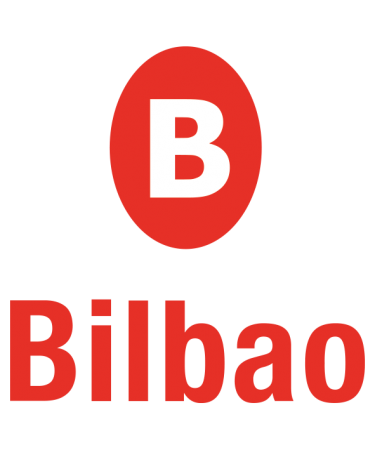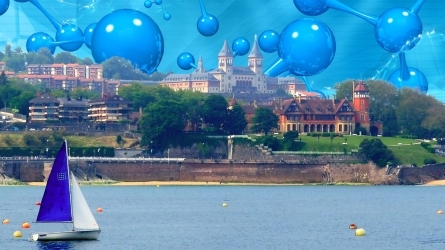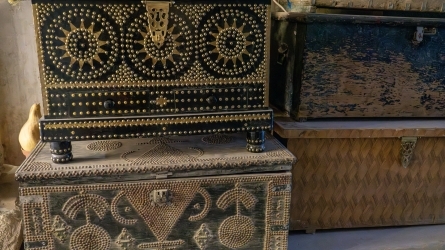
Kulturgest Bilbao. La gestión cultural, ampliando los márgenes
Segunda edición del Programa Kulturgest Bilbao del ciclo de Cursos de Verano en torno a la gestión de la cultura en Bilbao.
Description
Public policy in general tends to be continuous, guaranteeing the institutionalization of its own cultural environment. However, in an environment as changing as the current one, it could be enriching to take a look at new cultural practices that go hand in hand, that are recognized, but are not situated within the usual practice of cultural policy. The course aims to give insights that serve to reflect on how to broaden the margins of cultural policy through different forms of consumption and cultural creation. It addresses the window of opportunities of digitization and the virtual or online offer or how cultural policy can affect areas such as mental health.
Objectives
Reflect on the areas of action, content, of local public policy in Culture.
Reflecting on new formats in cultural public policy at the local level.
Activity directed to
- All public
- University student
- Students not from university
- Teachers
- Professionals
Program
23-06-2023
Registro
Presentation by the Director of the activity
Espacios y agentes para la mediación y gestión cultural: innovación y retos de futuro
- Ainhoa Novo Arbona | UPV/EHU - Profesora Agregada
“Las políticas culturales en la era de las plataformas digitales“
- Octavio Kulesz | Editor digital
“Internet, prácticas artísticas y políticas culturales para un presente crítico y un futuro creativo“
- Lidia Orán Llarena
Break
“Cultura y Salud Mental: reflexiones y prácticas“
- Kontxi Kerexeta Zulaika | Observatorio Vasco de la Cultura
- Aintzane Larrabeiti San Román
Round table: “Las políticas culturales ampliando los márgenes“
- Ainhoa Novo Arbona | UPV/EHU - Profesora Agregada (Moderator)
- Aintzane Larrabeiti San Román
- Lidia Orán Llarena
- Octavio Kulesz | Editor digital
- Kontxi Kerexeta Zulaika | Observatorio Vasco de la Cultura
Directors
PhD Lecturer of the Department of Political Science and Administration of the Faculty of Social Sciences and Communication (UPV/EHU). She has been Vice Dean of Teaching Organization of the Faculty of Social Sciences and Communication and Coordinator of the Degree in Political Science and Public Management. For the last five years, he has been a member of the Undergraduate Commission of the University of the Basque Country and a member of the Editorial Board of the Spanish Journal of Political Science. Public policies, especially equality policies and federal systems have been her main lines of research.
Speakers
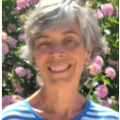
Kontxi Kerexeta Zulaika
Lehendakaritza
Licenciada en Sociología y Ciencias Políticas (Universidad de Deusto), y Diplomada Planificación Lingüística (EHU-UPV). Su carrera profesional está vinculada al ámbito de la normalización lingüística y la prospección sociológica en la administración pública. En los últimos 20 años su trabajo se ha desarrollado en el Gabinete de Prospecciones Sociológicas de Lehendakaritza y recientemente se ha incorporado al Observatorio Vasco de la Cultura.

Octavio Kulesz
Octavio Kulesz is a philosopher, digital publisher and director of Teseo, one of the main electronic publishers in Latin America. As a UNESCO expert, his work focuses on issues related to cultural industries in the digital age. In 2020 he was appointed a member of the UNESCO Group of Experts for the drafting of the Recommendation on the Ethics of Artificial Intelligence, the first global regulatory instrument on this subject.
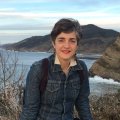
Aintzane Larrabeiti San Román
Graduate in Philosophy (Universidad de Deusto), Master's in cultural management and PhD student in leisure and human potential (UD). Her professional career is linked to the cultural field, both in public administration and in universities and private companies. She has been coordinator of the technical assistance of the Basque Observatory for Culture (2006-2010), and has participated in the preparation of qualitative studies and the Observatory's information management system since 2011. She currently works at ICC Consultors, a consulting company specialized in research, analysis and advice in the cultural sector.

Lidia Orán Llarena
PhD Lecturer of the Master in Teacher Training (2022-2023). PhD in Fine Arts from the Complutense University of Madrid (2016-2021). Her thesis addressed the "appropriation and simulacrum in visual representation through social networks: the case of Instagram". She has been a trainer in the Art and Gender Forum project of the Area of Equality and Affective Sexual Education for the Ministry of Education of the Government of the Canary Islands. She has given conferences on photography on social networks: a new way of expressing oneself, communicating and relating (2022, Tenerife).
Registration fees
| Face-to-face | Until 23-06-2023 |
|---|---|
| 0 EUR |
| Live online | Until 23-06-2023 |
|---|---|
| 0 EUR |
Venue
Bizkaia Aretoa-UPV/EHU
Avenida Abandoibarra, 3. 48009- Bilbao
Bizkaia
Bizkaia Aretoa-UPV/EHU
Avenida Abandoibarra, 3. 48009- Bilbao
Bizkaia
Sustainable development goals
Agenda 2030 is the new international development agenda approved in September 2015 by the United Nations. This agenda aims to be an instrument to favour sustainable human development all over the planet, and its main pillars are the eradication of poverty, a reduction in equality and vulnerability and fostering sustainability. It is a unique opportunity to transform the world up to 2030 and guarantee human rights for all.

11 - Sustainable cities and communities
Make cities and other human settlements inclusive, safe, resilient and sustainable. Key issues: access to suitable housing and basic services that are secure and affordable, suitable and sustainable transport systems, inclusive urban planning, participative planning and management, protection of cultural and natural heritage, air-quality, green zones, and connections between urban, peri-urban and rural areas.
More information
